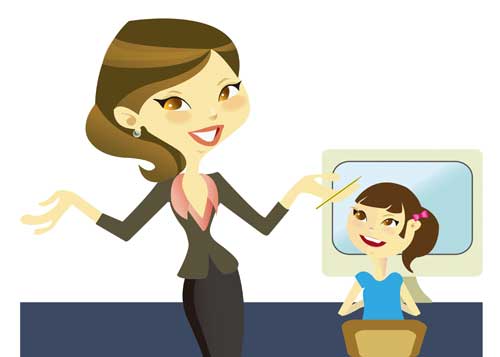|

Yale law professor Amy Chua has created waves in the media over her "Chinese" parenting style, which she documented in her memoir Battle Hymn of the Tiger Mother. Much has been made of her assertion that an A- is a bad grade and her reveal that she called one of her children "garbage." Yet her eldest daughter performed at Carnegie Hall at 14 and both of her girls are on track for Ivy League university admission. Strictness and unrelenting criticism were Chua's recipe for success. As the mother of two explains, "Chinese parents can do things that would seem unimaginable – even legally actionable – to Westerners." Kwame Dougan, a Ghanian lawyer based in Beijing, and Su Ying, a sales and marketing executive at News Corporation Beijing, give their own views on Chua's claims.
The New Immigrant Ethic
by Kwame Dougan
Amy Chua's parenting is grounded in a fear of failure, but her authoritarian style is no more exclusively Chinese than rice is: it can be found operating, to varying degrees of rigor, in most homes of recently arrived – and relatively poor – immigrants. I call this take-no-prisoners type of parenting the "new immigrant ethic." And as a black African immigrant to the West, I overcame significant odds, odds that don't factor in Chua's life and her Chinese-mother parenting model.
Growing up in Ghana, I attended a well-respected private school that practiced corporal punishment. My education was supplemented at home with very few play dates, no team sports and a disciplined regimen managed by my mother, a woman of means who also had time to stay home to nurture her son.
When circumstances moved us to Toronto, Canada, my mother and I were forced to start our lives over. The regimen was no longer as strict - and it couldn't be. In contrast to our wealth in Africa, we lived on public assistance, and my mother, a fervent Christian, prayed for what she herself could not materialize.
For many refugees, achievement means a career in a few high-profile professions such as medicine and law. Children are warned against other pursuits, and it was made clear that achieving anything "less" than these professions will bring shame upon the family. My mother held this stance. Though it was effective, I now have second thoughts about this method.
What motivates these mothers may be traumas they experienced in their homelands. In my mother's case, after witnessing a series of coup d'etats (and her older children's ambitions stagnated), she swore her youngest child would fare better. Her power lay in her ability to discipline me. Sadly, black boys in North America face a cacophony of obstacles to academic and social success, and talented students are often arbitrarily denied the beloved "A." (Chua's suggestion that parents reject lesser grades is unhelpful when dealing with teachers who stereotype.)
I was lucky, though. My mother, who before migrating lived a middle–class lifestyle, did what is common among parents of students that excel: she intervened. Donning traditional African garb, she would visit my school when she felt something was wrong. She realized that fear had worked initially, but for the black male in North America, cultivating effort, emphasizing African values and intervening early on had a greater impact.
Misunderstood Moms
by Su Ying
Are Chinese moms as strict as Amy Chua describes in her new book Battle Hymn of the Tiger Mother? I think some people misunderstand the Chinese parenting style, just like some Chinese misunderstand the Western parenting model. Both approaches emphasize one aspect, and so they each reach a certain extreme. In my opinion, the Chinese parenting style is not just about strictness or rigidity, nor is Western parenting just about freedom, which may ultimately lead to indulgence.
When I was in elementary school, my mom set high academic standards for me. But this didn't mean that if I didn't meet her demands, it would be the end of the world. On the contrary, my mom thought it was more important that I learn from my mistakes on an exam than have a good score.
My mom was not opposed to me being in a school play or having a play date. She often asked me to invite my good friends for dinner, and had me celebrate my birthday with classmates at home. It seems that it was those "occasions" that helped her to fully understand me - who my friends were and what we talked about.
Now, I know my mom did this intentionally, but this relaxed and free environment did benefit my personal growth and development. Even when I was a rebellious teen, I could still open my heart to my parents and talk about my worries and confusion. I feel I still have equal and free communication with them.
I think what Amy Chua stresses in her book is the important role parents' guidance plays in a child's development. It's critical for parents to steer their children in the right direction at an early age. Kids are not born with good learning habits, and they have poor self-control and tend to be lazy. Parents should stand firm and say no to those bad habits. Strictness and high standards can help form good habits.
But does the Western model actually mean too much freedom and no structure? Any rule that becomes too rigid will lose its power. Unrealistic and impossible standards are as problematic as no rules. Moreover, a mother's rules should not be carried out against the child's nature, nor human nature. The real enemy in children's growth is an imbalanced development of character. That's far more terrible than a bad score on an exam. |